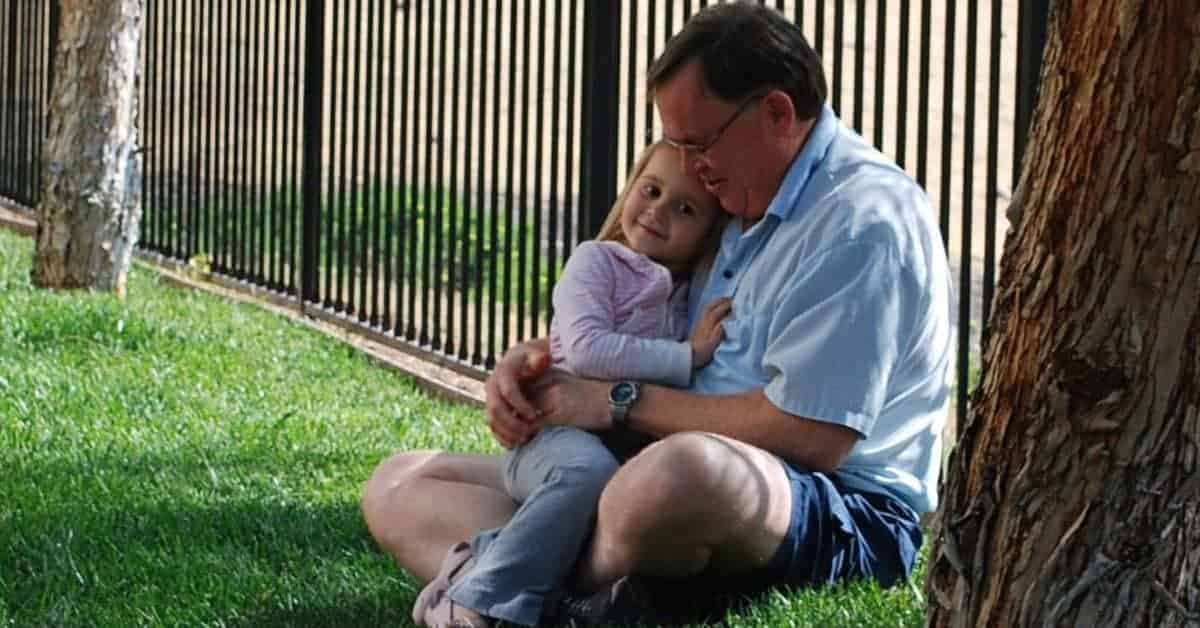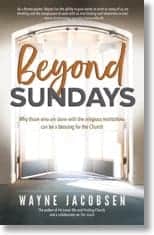When You Don’t Get the Miracle You Want, Part 12
This is the last posting of our continuing story of Alan and Lynn that began as In the Shadow of Death. Despite their best theological certainty that God would heal her, Lynn passed away from metastasized breast cancer. Alan is left to deal not only with his grief, but also with his view of a God he was certain would heal her.
You can read from the beginning starting here.
From Alan, July 31, 2019 (96 days after first email):
This has been a series of awful days as far as the devastation of grief is concerned. The reality of Lynn being dead is so horrific. I am quickly losing hope and lacking any reason to have it. God is silent. I am all alone in this world. People respond, “Oh, Alan, you’re not alone.” But I realized the other day that I do not know anyone in Lynn’s and my peer group that has ever lost a spouse. Many of them have lost a parent or friend but no spouses. I’m glad for them. I would not wish this on anyone. But at the end of the day, no one knows what to say.
Hope is non-existent.
I have been listening to some of your messages online trying to convince myself that God is not punishing me. Then my mind goes to all the ways I was unfaithful to the precious gifts God gave me. I never committed adultery with another woman, but in my position as a part-time disc jockey at a big country music station, I had myriad opportunities to flirt with women who called in to my show and flirted with me. I have done and thought and fantasized things that said, “Father God, I do not appreciate this precious woman.” Things that I looked at online were a disgrace to my wife.
So, here I am. Harvest time for Alan. Wife dead. God knows all of these things, and I feel that I am reaping corruption that comes from sowing to the flesh.
Your message is “living loved.” How can he “interact with me as His beloved,” and sit by in silence as my wife dies? Knowing He could have healed her in this realm with a breath or a word or a thought and yet when I poured my heart out in prayer, when Lynn poured hers out in prayer, He essentially said, “No.” How is that love at any level? Are we as believers – as his children – only to expect that he’ll be there to help us pick up the pieces when life crashes, but not to intervene to keep things from shattering?
Why did the apostles say to pray? We have a God, a Father. Isn’t there some benefit associated with that that unbelievers do not have? God let Lynn die. He took her. Yes, she is blessed beyond measure and likely not even aware of my pain. But he could have healed her here; he didn’t. I’m left in an avalanche of empty, lonely searing pain. I try to pray for others who are going through battles with cancer, and I wonder what is the use?
The other day I was listening to a teaching and how God delivered Israel from Egypt after 400 years of bondage. 400 years! What about those who lived and died and essentially had their cries for freedom ignored during all those years? At the end of the day, God is sovereign and will do what He wants when He wants, and we are best served by living with no expectation of answered prayer. We can only hope that we don’t end up too broken. My mistake was having too much hope and faith.
Paul went through tribulation. The apostles died horrific deaths. Where is the hope, the evidence in this life that having a Heavenly Father is even real? When does my mourning turn to joy? When will He give me gladness for sorrow? Lynn loved God and trusted Him, and I am confident even in her pain and death, she never had these cynicisms that I have. Her heart was never tainted with what she didn’t understand nor with the questions that I had. She often told me in frustration to trust God when I would be at a crossroads. But, it seems that we are just to shut up and try to be obedient and never get our hopes up even though we are supposed to have faith to please Him.
Wishing I could tell her “Happy Birthday” again in this life,
My response
I know, Alan, and my heart breaks for you this morning.
The first year of grief is always the most painful—first birthday, first anniversary, first holidays, first vacation, all the things you do the first time without her will feel hollow and horrible. Grief comes in waves. That’s why you’ll have good days, where you think you might be getting beyond it, and then WHAM! A special day, a memory, a place you both thought special, or a random rush of pain will cross your path, and the grief rushes back in. Take hope in this, the painful days will, in time, grow less intense and less often, and the better days of celebrating the love you shared will grow more frequent, sweeter, and more prolonged.
The only way through this is through it. Great wisdom, eh? As much as you might want to run from it, embrace it. One person said when the darkness overwhelms you don’t chase the sunset because you’ll never catch it. The fastest way to the light is to head toward the sunrise, away from the setting sun and the light will yet appear again, sooner if you head east than if you chase it hopelessly to the west.
How I wish you could just grieve on the days that seem so dark and invite your loving Father into that grief! Instead, what you believe about God takes you to a different place. Instead of having God as a comforting presence inside your pain, you beat yourself up for every bad thing you’ve ever done or mistakes you’ve ever made. Do you really think God would kill your wife to punish you for something you did wrong? Do you really think God would say, “You looked at another woman years ago, so I gave your wife cancer?”
Is that how you interpret sowing and reaping, that reaping is God giving you a penalty for some weakness or failure? Can you appreciate that when your mind goes into that dark hole, it will seem as if God is silent, even when he is not? His beckoning to you with great compassion is drowned out by the way you view him.
I can assure you the God who loves you was not silent through any of this. Unheard, maybe, because some things you’ve believed about him made it difficult to sense what he was saying to you, especially in the crisis you were in. In the flood of great waters, we can lose sight of who he is because we are so focused on our disappointment or feeling betrayed. I’ve tried to reflect some of what he has been speaking to you in my words through these many emails, and you have recognized that at times. He has been there with you. My words have just been imperfect reflections of the deeper love and wisdom in his heart for you. That’s why I struggle so against religious thinking that puts God on the other side of our pain, as the cause of it whether it be through punishment or “allowing it” through a lack of concern. I reject both of those.
You were not the cause of Lynn’s cancer; this is not punishment from him. Jesus took all of that for us. If he’s still punishing you for your mistakes or imperfections, then Christ died in vain. Sowing and reaping are not about punishment for past actions, but the simple consequences we face for the choices we make. Sow generosity, reap generosity. Sow indulgence, reap emptiness and pain.
I pray you can come to see God as the one who loves you more than anyone on this planet ever has or ever will. I want you to see Jesus as the loving Shepherd teaching us to live in the increasing freedom of the Father’s reality and growing us out of the places we got stuck and twisted. None of our failures surprise him, and none of them cut us off from his love. All of us can go back in our lives and pick out every mistake, bad thought, sinful action, or indulgence and think any of them exclude us from his love and care, but it still isn’t true. He’s the only one that can shape the trajectory of our lives and draw us out of the darkness and into the light. We won’t hear him do that if he’s condemning us for the darkness.
He celebrates our progress toward the light, not holding our past mistakes against us. How could we grow if he did? Ask him to help you let go of the past, not the good parts, but the mistakes and failures. You are his child—today! He is the rescuer in your story. No, that rescue did not include Lynn’s healing in this world to our great disappointment, but she has it now in another. And now he wants to rescue you through the grief and reveal himself to you in ways you’ve never imagined.
Don’t stay in the past, focused on your failures. Wake up every morning in the fresh mercy of a loving Father. Follow him each day in the simple things he nudges your heart towards. He will lead you beyond the grief to all that he still has planned for you in your days on this earth. Let who he really is sink in past your disillusionment with him. You are being dis-illusioned. You had illusions about God that were never going to serve you well. He wants you to know him as he really is, and that is far better than either of us could conceive.
So, lean into love, Alan. It will be there for you every day. He’s closer than we know. Ask him to open the eyes of your heart to what is true of him, and for the God of all comfort to hold you in those moments you despair of life, just like Paul did (2 Corinthians 1).
I’m praying, too, Alan. I think you’re making significant progress, but I know that may be tough to see from where you sit, especially today.
———————————————————–
This is the last blog I’m going to do in this series. Alan and I have continued to be in touch, and I see signs of new life springing up in him as he continues to move forward. What’s more important is that he does, too. Here are a couple of snippets he sent me toward the end of August.
… I had a cool moment yesterday as I was going through some of her CDs and found the original one where I first heard you. You were in Wisconsin talking about living loved, and it is terrific. I’m listening to it multiple times, which seems to be a habit I’ve developed of late – listening to teachings that minister to me over and over.
… I am in a weird place. I am still grieving hard for my sweet bride. But I feel like God is putting me back together. A friend spoke to me and said that they felt like God was showing them that I am like a big tree that has had the bark blown off, and that has been nearly obliterated. But there is still a deep root. And that root is springing forth new life, and the tree will grow again. I don’t know, but I am thankful more and more for Lynn and her strong, steadfast faith.
If there’s a significant development here that extends the story, I will add it in a future blog. But I think Alan is finding his footing again and it will just take time for the grief of Lynn’s passing to be overwhelmed by the new creation that will continue to spring up in Alan’s journey. I want to thank “Alan” for giving me permission to share his emails, and thus his vulnerability and pain, with all of us. There were some raw moments in there that were real, and I know they resonated with many of you as you sort out God’s goodness in the face of him not doing what you thought love, or your theological convictions, would compel him to do. Our best intentions and misguided expectations can so easily block out our ability to sense his presence and see his fingerprints unfold in our days.
Every week my inbox is full of people facing horrible tragedies, and it is also filled with lots of stories of people who have been through those tragedies and come out on the other side more alive in Christ than ever and more transformed to embrace who God really is. Finding our security in his love, especially when the foundations of our lives are shaken, is quite a process. Pain has a way of dulling our spiritual senses, but God’s Spirit is even better at helping us embrace reality and find that God is bigger than our disappointments in him.
Dave Coleman, my co-author on So You Don’t Want to Go to Church Anymore, often tells me that he thinks 90% of Christians live with an undercurrent of anger towards God for not answering their prayers. Many have lost children, spouses, marriages, businesses, or friends in sickness, accidents, betrayal, or just unforeseen circumstances that sidetrack our joys or hopes.
The only absolute reality is that we are deeply loved by the God who made us and he wants to be inside the most brutal moments of our lives with us, helping us resolve our pain and draw closer to him. To do that, it will help if we lean on him at such times and not push him away by our false judgments about him or his motives toward us. He can handle our honesty, our disappointments, and our fears and walk us out to a place of freedom. That’s not a given, however. Brutal times can make us defensive, bitter, and isolated, or they can open our hearts to compassion, humility, and transformation.
I don’t believe God causes sickness and disease or withholds healing to make us better people, to punish us for our past mistakes, or to teach us much-needed lessons. He doesn’t have to. This broken Creation causes pain enough for all of us in various seasons. How we navigate them inside his care is way more important than trying to figure out why they happen, or why he doesn’t fix them the way we want.
I have been overwhelmed with email, blog comments, and FB postings that many of you have shared as this story has touched something in your own journey. I do think we’d be better off if we talked openly about these things—prayer, healing, death, disappointments. And our own mortality. Growth comes in such exchanges.
On this side of the Resurrection, we are all mortal. Until Jesus comes again, you and everyone you know will die. That’s how we get from this realm into the next. Death is so excruciating for those it leaves behind because of the vacuum it creates when their love and presence departs.
We forget, however, that for those who die in Christ, it is just the beginning of the greatest adventure ever into the unrestrained depths of God’s love!
When You Don’t Get the Miracle You Want, Part 12 Read More »






 Wayne’s Latest Book Is Almost Here
Wayne’s Latest Book Is Almost Here



